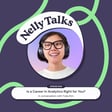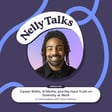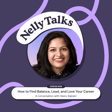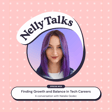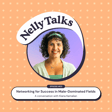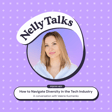
#05 | From Self-Taught Coder To Chief AI Officer - Jordan Legg
In this episode of Nelly Talks, Nelya sits down with the inspiring Jordan Legg, a Chief AI Officer and Founder at Takara.AI whose path from self-taught coder to tech innovator is anything but ordinary. Whether you’re looking for tips to break into the tech industry or tackle the challenges of entrepreneurship, Jordan shares plenty of inspiring insights and practical advice that you won’t want to miss.
Timestamps:
00:00 Nelly Talks Intro
01:08 Meet Jordan Legg
02:20 Did you always know you wanted to go into the tech industry?
04:34 Was your untraditional career path a hurdle for you?
06:37 If not through formal education, how did you learn what you needed to?
09:33 What do you enjoy most about your job? 10:45 Are there any down sides to your job?
12:02 How do you try to achieve a healthy work/life balance in your role?
14:23 Has generative AI's rise in popularity impacted your role?
19:23 Do you feel like there is more representation in the tech industry?
21:48 What do you think about the tech scene in Milton Keynes?
24:26 What advice would you give your younger self?
26:37 Nelly Talks Outro
Key Points:
• Teach yourself to code by using online resources like tutorials and coding platforms
• Focus on gaining practical skills and hands-on experience even if you don’t have a formal education
• Master the fundamentals of coding and AI before relying on advanced tools
• Embrace problem-solving and learn as you go when facing unfamiliar challenges
• Set boundaries for work and prioritise balance to avoid burnout
Let us know what guests you'd like us to interview in future episodes!
